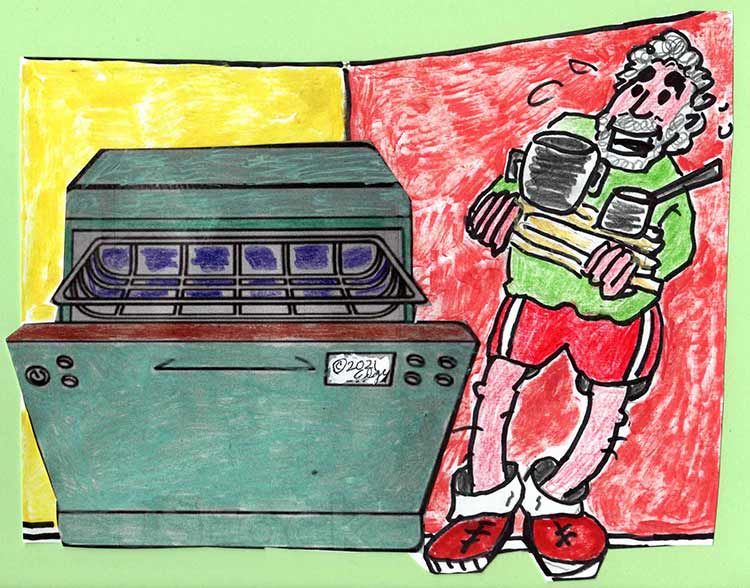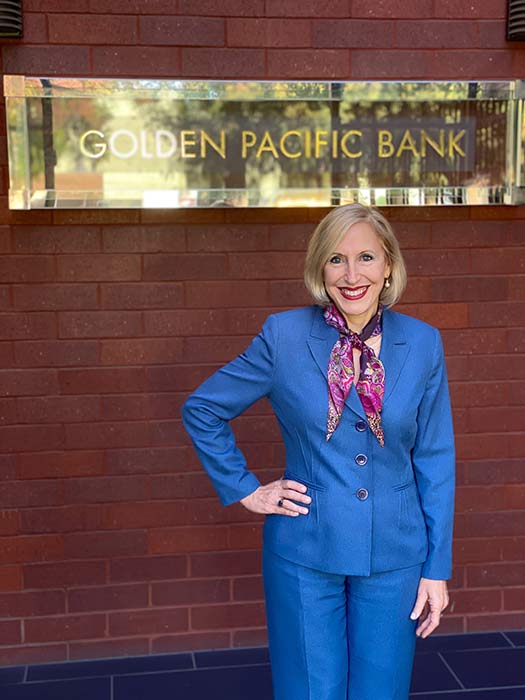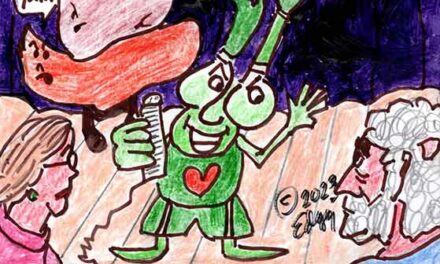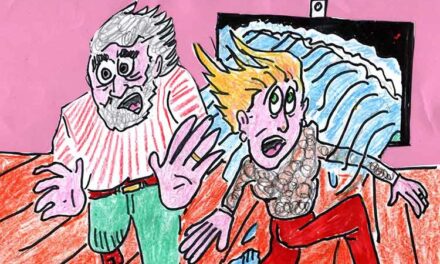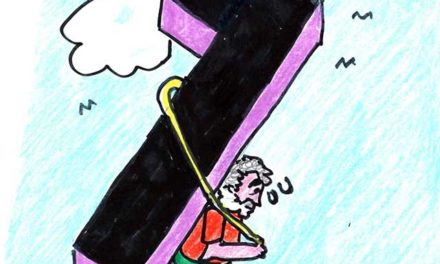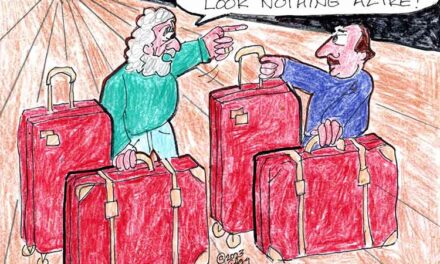“Dry,” He Said: Breaking The Cycle Of Rinse
Some post-prandial positing
By Ed Goldman
When I was the only one of my parents’ kids still at home, it was a magical time for me to spend with my Dad. He’d wash, I’d dry and both of us would sing at the top of our lungs: spirituals, show tunes, even the occasional Beatles song. My Dad especially liked “Yesterday” and once said of Paul McCartney, its composer and vocalist, “That boy can sing.” This was high praise from a man whose basso profundo pipes could out-“HoHoHo” that of the Jolly Green Giant (who was voiced by veteran actor Herschel Bernardi, who played the cop on “Peter Gunn,” a jazz-scored TV show that was both retro and ahead of its time).
That was the love part of the doing-the-dishes equation.
If you haven’t hosted disastrous dinner parties, here’s a list of things that could and did go wrong for me:
1. People arrived well beyond “fashionably late”—or, in a few cases, preposterously early, necessitating I make them comfortable while I was making the dinner. The worst of these early worms would sometimes insist on joining me in the kitchen to kibbitz as I prepped, and sometimes, even worse, offer suggestions on my process:
“You’re not going to put the marinade on the lamb before roasting it, are you?”
“Yeah, I am. And this is prime rib, not lamb.”
“My bad.”
3. When guests hovered over me in the kitchen I’d get confused (this happened twice) and I put the mixing bowl filled with salad stuffs into the oven, right beside the prime rib, at 350 degrees.
When I’ve hosted a perfectly enjoyable dinner party, I deliberately leave the dirty dishes and silverware and pots exactly where they are and head to bed with a smile on my face—one that lasts through the next morning as I clear the table, rinse everything and load the dishwasher. I grin remembering different vignettes from the night before.
Yes, doing dishes is a dirty job. But sometimes—if you’ve cooked for dear friends, family or an oh-so-significant other, it can be a guilty pleasure. And as we all know, the best guilty pleasures are the ones we don’t feel the least bit guilty about.
Ed Goldman's column appears almost every Monday, Wednesday and Friday. A former daily columnist for the Sacramento Business Journal, as well as monthly columnist for Sacramento Magazine and Comstock’s Business Magazine, he’s the author of five books, two plays and one musical (so far).
Yes, Virginia
A Weekly Blog by Virginia Varela
President and CEO, Golden Pacific Bank
photo by Phoebe Verkouw
The simple answer is: I’m proud to be a part of America’s banks, which continue to help their customers and communities, and support the nation’s economic recovery.
America’s banks drive economic growth and well-being across and throughout the communities and neighborhoods they serve, supporting the diverse needs of individuals and businesses with a range of services.
Some statistics from the American Bankers Association website may explain why I take a great deal of pride in my work:
– The nation’s 5,000+ banks (of all sizes) support their customers and communities by lending money that helps individuals, families and businesses secure a brighter future.
– In the United States, banks employ two million employees, providing a safe place for customers to save, as well as offering the financial and volunteer support communities need to succeed.
– Over this past and challenging year, banks posted $10.9 trillion in total loans outstanding, and safeguarded customers’ finances with $22.3 billion in prevented fraud.
– Banks make a difference in every state. In my own, California, banks employ 160,792 individuals, booked $269.4 billion in new home loans in 2020, and serve 24.7 million customers.
Over this daunting pandemic period, the essential role America’s banks have played in the nation’s well-being has never been more apparent. Banks of all sizes have stepped up for their customers, employees and the communities they serve.
Now do you see why I’m proud to be a part of this industry?
sponsored content



